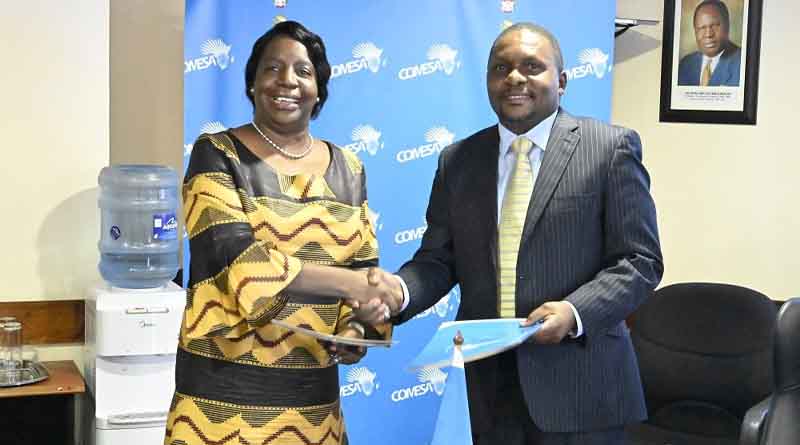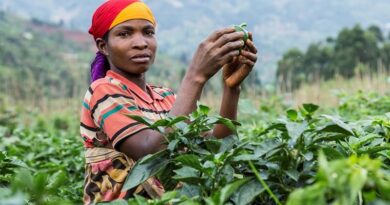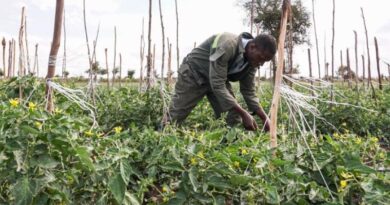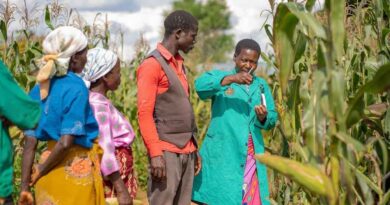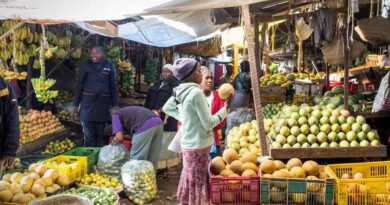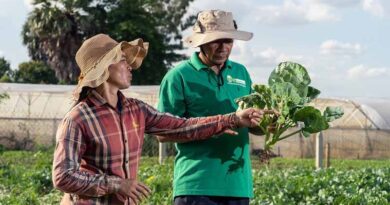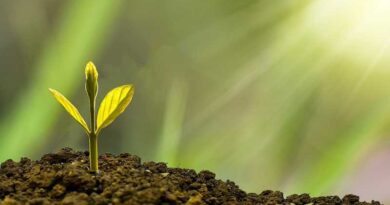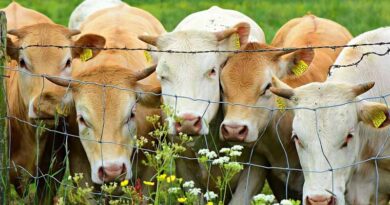CABI renews agreement with COMESA for increased trade in fresh fruit and vegetables
16 May 2023, Africa: CABI has renewed its agreement with the Common Market for Eastern and Southern Africa (COMESA) which will see the two organisations continue efforts towards supporting member countries in increased trade of their fresh fruit and vegetables.
Dr Morris Akiri, Dr Noah Phiri and Phyllis Ombonyo, from CABI’s regional centre for Africa based in Nairobi, Kenya, met with representatives from COMESA and the Zambian Government as part of a ceremony to sign a Memorandum of Understanding (MoU) between the two parties.
Among those in attendance from COMESA was Her Excellency the Secretary General Madame Chileshe Kapwepwe who said “COMESA values CABI’s programmes on the ground but also its strong research capacity which acts as a basis for evidence-based policy formulation.”
The cooperation will see CABI and COMESA supporting countries, such as Zambia-a COMESA member state, improve their phytosanitary measures and quarantine services to manage potentially devastating crop pests and diseases. Last year, for example, CABI joined forces with the Zambian Government in its bid to help curb the spread of Cassava Brown Streak Disease (CBSD) – a high risk plant health problem that can cause a total loss of the cassava crop – considered a staple food source for millions of residents.
Representatives from CABI’s centres in Lusaka and Nairobi, Kenya, met with officials from Zambia’s Ministry of Agriculture (MoA) and His Royal Highness Senior Chief Kaputa to agree to work collaboratively on a plan to help fight CBSD in Zambia.
Those who also worked, as part of a campaign to raise awareness and act against CBSD, were the Zambia Agriculture Research Institute (ZARI), Department of Agriculture (DoA) and Dziwa Science and Technology Trust (DSaT).
Part of the current MoU with COMESA will see CABI continuing to support member countries in the establishment of an Early Warning and Emergency Response System (EWERS) and information sharing platform for pests that also include the fall armyworm.
The collaboration will also involve the conducting of joint training sessions on Pest Risk Analysis (PRA), diagnostics and horizon scanning of pests as well as the development of Integrated Pest Management (IPM) plans that include the use of safer-to-use and more environmentally-friendly biological control agents.
Furthermore, there will be a strong focus on supporting activities geared towards greater food and nutrition security and climate change mitigation and adaptation strategies. There will also be continued mainstreaming of gender and youth in plant health research and interventions to achieve greater impact.
Dr Akiri, Senior Regional Director, CABI Africa, said, “Both CABI and COMESA have a shared vision and mission of taking measures to promote sustainable agricultural practices and food security in the region. This is in order for member countries to maximise their potential to trade not only with each other but also with more lucrative global markets.
“Key to this will be identifying priority areas for intervention to increase productivity, quality and generally the development of the agriculture sector in line with the competitive trends that may emerge from time to time.”
After the meeting to sign the MoU, CABI met with Dr Kajarayekha Kenneth Msiska, Director of Zambia’s Plant Quarantine and Phytosanitary Service, who spoke about how CABI had supported the country to resume trading its maize with South Africa.
CABI provided technical expertise on how to manage the False Coddling Moth of maize which allowed Zambia to restart trading with South Africa after a temporary suspension due to the failure of the pest being intercepted prior to export.
Dr Phiri, CABI’s Regional Representative, in Southern Africa, worked to help identify the pest of concern and improve sanitary and phytosanitary standards in order to satisfy the South African authorities so that exports of Zambia’s maize could continue again.
Dr Kajarayekha Kenneth Msiska said, “It took us one year to resolve this stalemate where no trading. The amount of money lost by virtue of the 10 tracks being sent back was US$200m. On matters of phytosanitary, response time is key. If CABI’s intervention was not there, the consequences would have been dire.”
CABI works to unlock trade barriers across the African continent. By helping farmers improve the quality and safety of what they grow, process and sell, CABI helps break down barriers to trade and access for smallholder farmers to domestic and international markets.
In the past, CABI has supported Uganda and Ghana to resume trading with the European Union (EU). In the case of Ghana, the EU lifted its ban on imports of Ghanaian produce worth US$15M while in Uganda the number of product interceptions was reduced from 36 to zero over a five-year period.
Dr Kajarayekha Kenneth Msiska added that CABI and COMESA will look towards supporting Zambia in dealing with False Coddling Moth which is also a risk to avocado crops. This will involve a joint proposal to be submitted to the Standards and Trade Development Facility (STDF) on addressing False Coddling Moth with a focus on greater market access.
Also Read: Decrease in area under Summer Crops in the country; Paddy down by 6 percent
(For Latest Agriculture News & Updates, follow Krishak Jagat on Google News)

